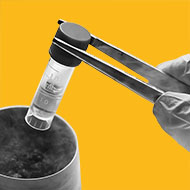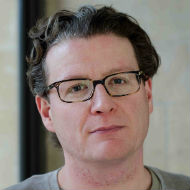 Biomedical Sciences is a relatively new course at Oxford, highly relevant to major issues facing society today. This broad and flexible programme ranges from genetics and molecular and cellular biology to integrated systems physiology, neuroscience and psychology. The course is truly interdisciplinary in nature with a number of departments and units contributing teaching, including Biochemistry, Experimental Psychology, Pathology, Pharmacology, and Physiology, Anatomy and Genetics. The broad first-year course will ensure that you receive a strong foundation in all aspects of the subject, and training in relevant study skills. You will attend lectures, practical classes and tutorials that will introduce you to systems science (Body, Brain and Behaviour) and to cell biology (Cells, Molecules, Genes), as well as classes in essential physical, mathematical and statistical concepts to give you the confidence to work with primary literature later in the course. The second year offers you a wide range of options within the subject, including psychological processes and disorders, neuroscience, cellular and systems physiology, genetics and developmental biology, pharmacology, cellular pathology and immunology. Students can elect to graduate after three years with a BA degree. On the basis of the specialisation initiated by the selection of second-year modules and confirmed by the choice of third-year options, students will be awarded a degree in either Neuroscience or Cell and Systems Biology. The research-intensive fourth year leads to the award of a Master’s degree. Students who complete the fourth year will graduate with a Master’s degree.
Biomedical Sciences is a relatively new course at Oxford, highly relevant to major issues facing society today. This broad and flexible programme ranges from genetics and molecular and cellular biology to integrated systems physiology, neuroscience and psychology. The course is truly interdisciplinary in nature with a number of departments and units contributing teaching, including Biochemistry, Experimental Psychology, Pathology, Pharmacology, and Physiology, Anatomy and Genetics. The broad first-year course will ensure that you receive a strong foundation in all aspects of the subject, and training in relevant study skills. You will attend lectures, practical classes and tutorials that will introduce you to systems science (Body, Brain and Behaviour) and to cell biology (Cells, Molecules, Genes), as well as classes in essential physical, mathematical and statistical concepts to give you the confidence to work with primary literature later in the course. The second year offers you a wide range of options within the subject, including psychological processes and disorders, neuroscience, cellular and systems physiology, genetics and developmental biology, pharmacology, cellular pathology and immunology. Students can elect to graduate after three years with a BA degree. On the basis of the specialisation initiated by the selection of second-year modules and confirmed by the choice of third-year options, students will be awarded a degree in either Neuroscience or Cell and Systems Biology. The research-intensive fourth year leads to the award of a Master’s degree. Students who complete the fourth year will graduate with a Master’s degree.
Biomedical Science students at Univ are able to draw on the experience of tutors with a broad range of expertise to help them over the course of their studies. All College tutors in this course are active in research and are eager to introduce undergraduates to the excitement of the experimental medical sciences. There is a strong community amongst Biomedical Science students at Univ; students are supported in pursuing broad interests within the degree should they want to, but everyone remains part of a unified cohort.
There is a wealth of information about the Biomedical Sciences course structure, possible option choices, and admissions criteria on the University of Oxford’s main website, available at ox.ac.uk
Any undergraduate degree at Oxford provides you with a wide variety of transferable skills and therefore Univ’s students progress to a diverse range of careers. For some, their undergraduate degree leads to academic research, industrial research or teaching. For many, their future career, for instance in business, government or the charitable sector, is defined less by the subject they studied and more by the skills they acquired. Oxford’s Careers Service provides destination statistics for graduates.
Resources
If you are considering applying for Biomedical Sciences, a number of resources you might find useful to explore beyond the school curriculum can be found on Univ’s Staircase12 pages, including the Reading Bank and Resource Hub.








